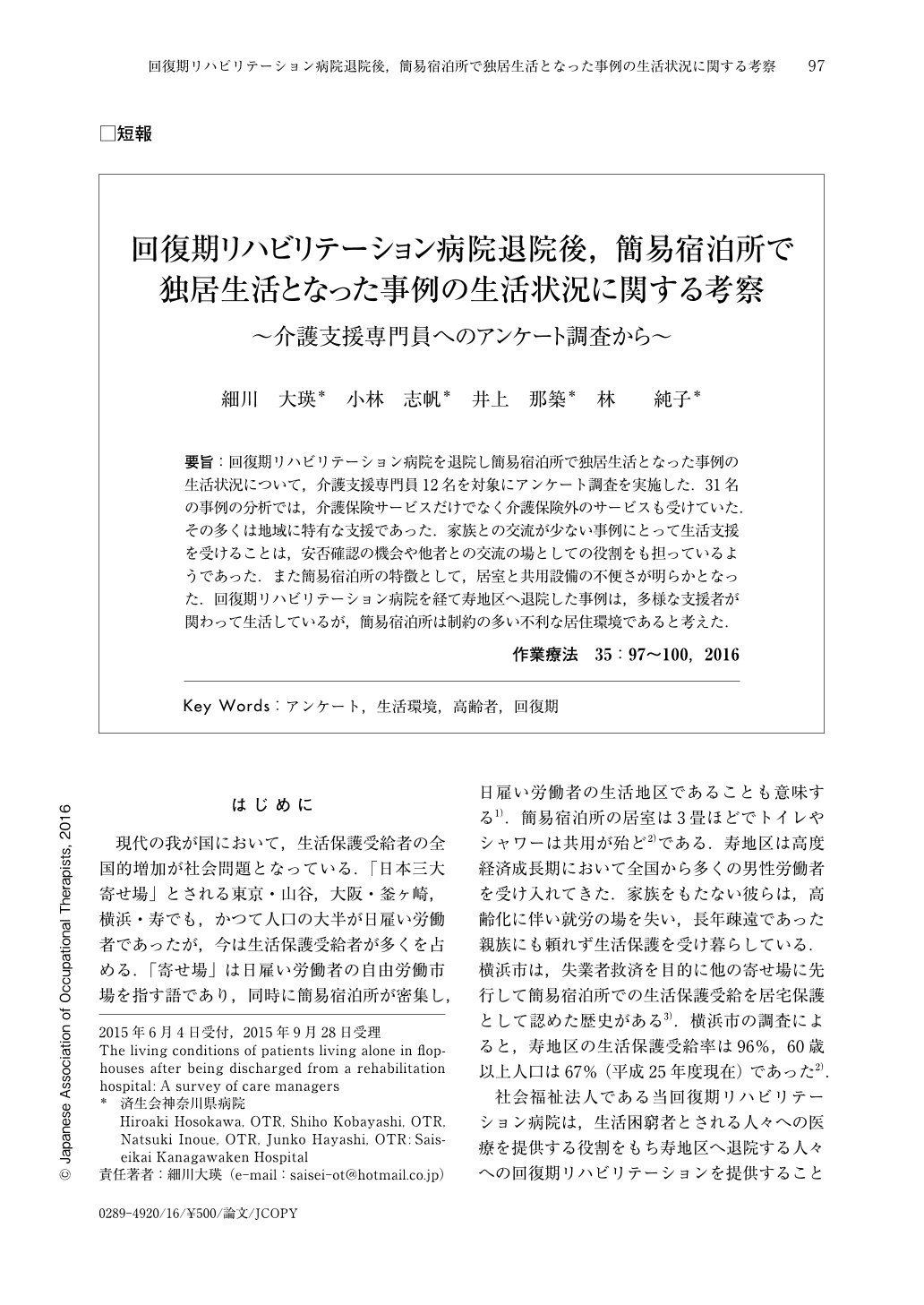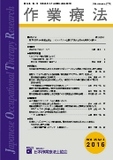Japanese
English
- 販売していません
- Abstract 文献概要
- 1ページ目 Look Inside
- 参考文献 Reference
- サイト内被引用 Cited by
要旨:回復期リハビリテーション病院を退院し簡易宿泊所で独居生活となった事例の生活状況について,介護支援専門員12名を対象にアンケート調査を実施した.31名の事例の分析では,介護保険サービスだけでなく介護保険外のサービスも受けていた.その多くは地域に特有な支援であった.家族との交流が少ない事例にとって生活支援を受けることは,安否確認の機会や他者との交流の場としての役割をも担っているようであった.また簡易宿泊所の特徴として,居室と共用設備の不便さが明らかとなった.回復期リハビリテーション病院を経て寿地区へ退院した事例は,多様な支援者が関わって生活しているが,簡易宿泊所は制約の多い不利な居住環境であると考えた.
Care managers supporting disabled individuals who live alone in a flophouse in the Kotobuki district in Japan were surveyed. It was revealed that the flophouse's rooms were characteristically cramped, and the occupants shared kitchens and bathrooms. The occupants received assistance through the national insurance, as well as volunteer support and help which was characteristic to this area of Tokyo. Due to lack of support from family and friends, these life support services maintained the health of and communication with the flophouse occupants. The insufficient rooms and common areas became apparent. In conclusion, those who were discharged to Kotobuki district from rehabilitation hospitals received a variety of support. However, the simple accommodations present obstacles to a health lifestyle.

Copyright © 2016, Japanese Association of Occupational Therapists. All rights reserved.


